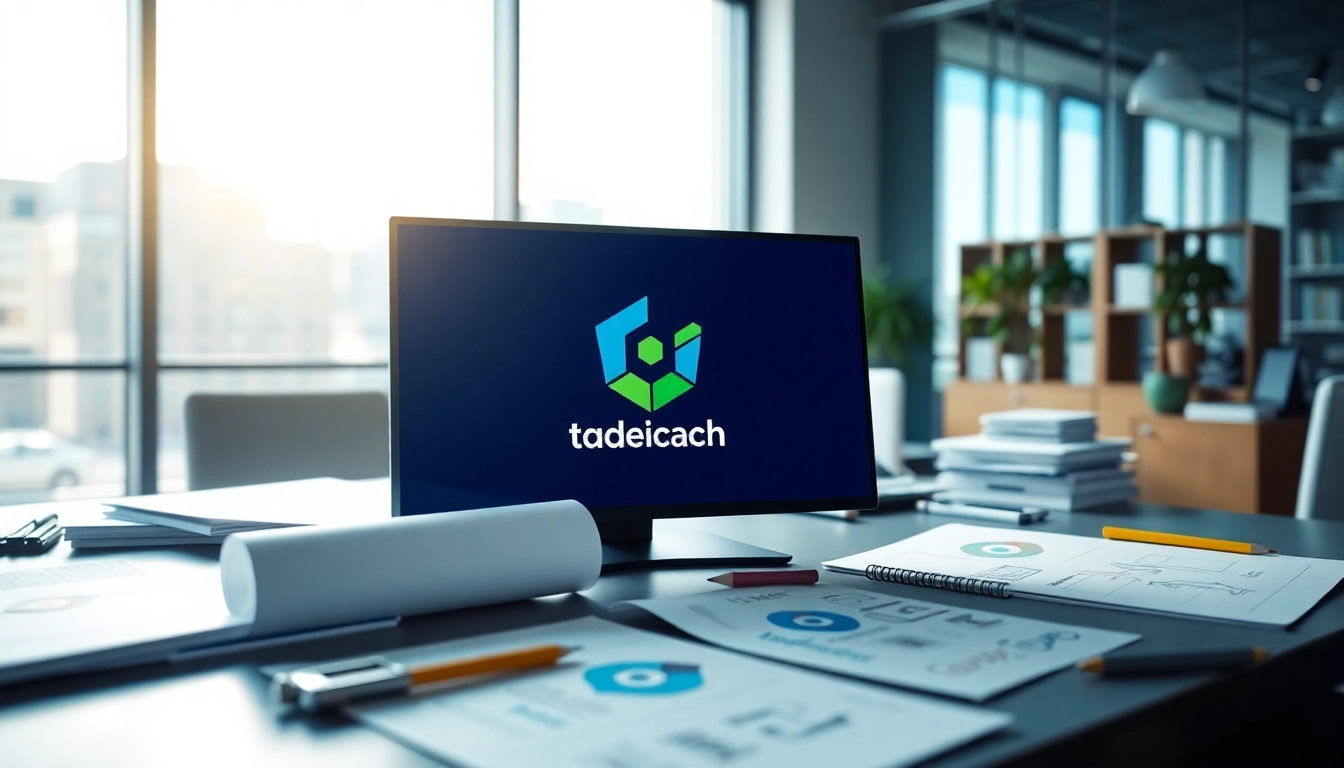Understanding the Role of Wholesale Real Estate Cold Callers
In the realm of real estate, especially in wholesaling, effective communication and outreach can make or break the success of a deal. Wholesale real estate cold callers play a pivotal role in this process by reaching out to potential sellers, establishing relationships, and ultimately facilitating transactions. Understanding their role, the skills they possess, and how they fit into the overall wholesaling process is essential for anyone looking to enter the industry or enhance their business strategy.
What Do Wholesale Real Estate Cold Callers Do?
Wholesale real estate cold callers primarily focus on contacting property owners who may be interested in selling their homes. Their goal is to identify motivated sellers, ascertain the potential value of the property, and present an offer that is attractive to both parties.
Their day-to-day tasks typically involve:
- Researching Leads: They gather information on potential sellers through various online platforms, public records, and referrals.
- Making Calls: Initiating conversations with homeowners to gauge interest in selling.
- Building Rapport: Establishing a connection with homeowners to create trust and rapport, which is crucial in persuading them to sell.
- Negotiating Offers: Discussing price and terms with sellers, often working to secure properties at below-market prices.
- Documenting Results: Keeping track of calls, notes from conversations, and follow-up actions needed.
Key Skills and Traits of Successful Cold Callers
The effectiveness of a wholesale real estate cold caller rests on specific skills and personal traits:
- Communication Skills: Clear and persuasive communication is essential to convey value and build trust with potential sellers.
- Active Listening: Understanding the needs and concerns of sellers is crucial to address their objections and find common ground.
- Resilience: Cold calling involves frequent rejection, so resilience and a positive attitude are key to keeping motivation high.
- Negotiation Skills: The ability to negotiate favorable terms while being fair and friendly can lead to successful transactions.
- Organizational Skills: Managing leads and follow-ups requires detailed tracking and scheduling capabilities.
How Cold Calling Fits into the Wholesaling Process
Cold calling is a critical phase in the wholesaling process. It serves as the initial outreach method used to connect with potential sellers. Once a cold caller identifies a motivated seller, the process evolves into:
- Initial Contact: The first conversation that gathers essential information about the property and seller’s motivations.
- Follow-Up: Setting up subsequent calls or meetings to delve deeper into the details and build a relationship.
- Securing the Property: If negotiations are successful, the caller helps facilitate obtaining a contract to secure the property for resale to an investor.
Effective Strategies for Cold Calling in Real Estate
Building a Targeted Call List for Wholesale Real Estate
A well-targeted call list is foundational to successful cold calling. Here are steps to develop an effective list:
- Identify Target Markets: Focus on neighborhoods with a high turnover rate or areas experiencing economic distress.
- Utilize Public Records: Access property records to find distressed properties or owners in need of liquidation.
- Leverage Technology: Utilize apps and software to scrape data for phone numbers and addresses.
- Segment Your List: Categorize leads based on how motivated they might be to sell, such as those in pre-foreclosure or recent evictions.
Crafting the Perfect Cold Calling Script
A strong cold calling script can streamline the conversation and ensure all necessary points are covered. Consider the following elements:
- Introduction: Clearly identify yourself and your purpose within the first couple of sentences.
- Engaging Opening Question: Ask something probing that relates directly to the homeowner’s situation, such as: “How long have you owned your property?”
- Value Proposition: Convey what you can offer the seller that benefits them.
- Objection Handling: Prepare responses to common questions or concerns sellers may raise.
- Call to Action: Conclude with a clear next step, whether that means scheduling a follow-up or setting up a meeting.
Dealing with Rejection: Tips for Resilience
Cold calling involves a substantial amount of rejection, and maintaining motivation is key. Following these tips can help cold callers build resilience:
- Shift Perspective: See rejection as a learning tool rather than a personal failure.
- Celebrate Small Wins: Acknowledge every appointment scheduled or conversation that progresses to the next step.
- Take Breaks: Step away when feeling discouraged to reset your mindset before picking up the phone again.
- Stay Organized: Keeping track of successes and failures can help provide insight into patterns and strategies that truly work.
Technology and Tools for Wholesale Real Estate Cold Callers
Top CRM Tools to Enhance Cold Calling Efforts
Investing in a Customer Relationship Management (CRM) software can vastly improve productivity for cold callers. Top tools include:
- HubSpot: Free basic CRM tool ideal for managing contact lists and tracking interactions.
- Zoho CRM: Offers comprehensive solutions, including automated workflows for contacting leads.
- Salesforce: A leading CRM that allows customization and detailed analytics for tracking calls and conversions.
- Pipedrive: Great for managing leads through the sales pipeline and tracking conversions effectively.
Using Call Tracking Software for Better Insights
Call tracking software provides valuable insights into the effectiveness of your cold calling efforts. Features to look for include:
- Call Recording: Listen to past calls for training and improvement.
- Call Analytics: Track metrics such as duration, completion rates, and outcomes from calls.
- Missed Call Alerts: Enable follow-ups and increase the chances of re-engaging lost leads.
Integrating Virtual Assistants into Your Cold Calling Process
Many investors and wholesalers are hiring virtual assistants (VAs) to manage their cold calling efforts, allowing them to focus on nurturing leads and closing deals. When integrating VAs, consider:
- Training: Provide comprehensive training on your processes, scripts, and:
best practices for engaging with sellers.
- Monitoring: Regularly evaluate their performance against key metrics to ensure effectiveness.
Measuring Success: KPIs for Cold Callers in Real Estate
Understanding Call Conversion Rates
Conversion rate is one of the most telling KPIs for cold callers. This metric reveals the percentage of calls that lead to scheduled meetings or signed contracts. A good conversion rate can vary, but generally, if you can attain a 5-10% conversion rate, you should consider your efforts effective.
Tracking Follow-Up Success and Lead Nurturing
Understanding how well you follow up with leads is just as important as the initial call. Measurement tools should include:
- Follow-Up Contact Rates: Track how many of your leads engage after the first conversation.
- Lead Nurturing Duration: Assess how long it takes to convert a call into a deal.
Evaluating Team Performance in Cold Calling
For organizations employing multiple cold callers, monitoring overall team performance is fundamental. Key metrics include:
- Frequency of Calls: How many calls a team member is making daily and weekly.
- Success Ratio: The ratio of successful conversions compared to the total number of calls made.
The Future of Wholesale Real Estate Cold Calling
Emerging Trends in Real Estate Cold Calling
As technology evolves, so do the methods of cold calling. Future trends might include an increased emphasis on:
- Personalization: Highly tailored communications to resonate more with potential sellers.
- Data Analytics: Leveraging big data to predict seller behaviors and optimize calling strategies.
How AI and Automation are Changing the Landscape
Artificial Intelligence (AI) and automation tools are beginning to transform how cold calling is conducted:
- Chatbots: Establish initial contact and gather information before handing leads over to human callers.
- Automated Dialing Systems: Streamlining the process for calling large numbers of leads and decreasing wasted time between calls.
Preparing for Challenges Ahead in Cold Calling
The real estate landscape is becoming increasingly competitive, and cold callers must be ready to embrace challenges such as:
- Regulatory Compliance: Staying updated on regulations such as the Do Not Call list to avoid penalties.
- Changing Seller Preferences: Adapting to sellers’ changing needs and preferred communication channels.



